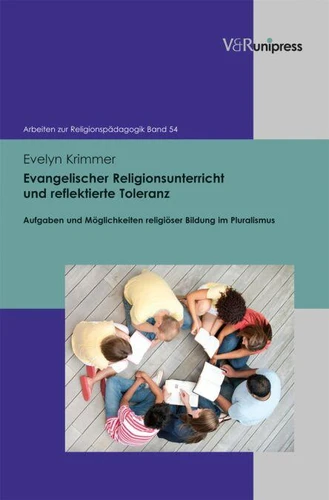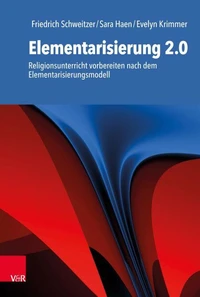Evangelischer Religionsunterricht und reflektierte Toleranz. Aufgaben und Möglichkeiten religiöser Bildung im Pluralismus
Par : , , ,Formats :
Disponible dans votre compte client Decitre ou Furet du Nord dès validation de votre commande. Le format PDF est :
- Compatible avec une lecture sur My Vivlio (smartphone, tablette, ordinateur)
- Compatible avec une lecture sur liseuses Vivlio
- Pour les liseuses autres que Vivlio, vous devez utiliser le logiciel Adobe Digital Edition. Non compatible avec la lecture sur les liseuses Kindle, Remarkable et Sony
 , qui est-ce ?
, qui est-ce ?Notre partenaire de plateforme de lecture numérique où vous retrouverez l'ensemble de vos ebooks gratuitement
Pour en savoir plus sur nos ebooks, consultez notre aide en ligne ici
- Nombre de pages362
- FormatPDF
- ISBN978-3-8470-0072-3
- EAN9783847000723
- Date de parution19/02/2013
- Protection num.pas de protection
- Taille5 Mo
- Infos supplémentairespdf
- ÉditeurV&R Unipress
Résumé
Reaching far beyond the field of education, the importance of tolerance for almost every context of our society cannot be overestimated. Quite often, however, it is religion which is publicly perceived as a source of intolerant behaviour, while the possibility of discovering strong reasons for firm tolerance within the religious traditions themselves has not yet been considered thoroughly enough. Assuming a positive correlation between religion and tolerance, this study suggests steps towards a higher capability of tolerance within our pluralistic society and, as a consequence of identifying the roots of tolerance within religion itself, outlines possible strategies of acting considering the future development of Protestant religious education in Germany.
In contrast to abstract ways of being tolerant, only reflected tolerance based on faith and aware of one's own point of view seems capable of entering into dialogic engagement with different beliefs.
In contrast to abstract ways of being tolerant, only reflected tolerance based on faith and aware of one's own point of view seems capable of entering into dialogic engagement with different beliefs.
Reaching far beyond the field of education, the importance of tolerance for almost every context of our society cannot be overestimated. Quite often, however, it is religion which is publicly perceived as a source of intolerant behaviour, while the possibility of discovering strong reasons for firm tolerance within the religious traditions themselves has not yet been considered thoroughly enough. Assuming a positive correlation between religion and tolerance, this study suggests steps towards a higher capability of tolerance within our pluralistic society and, as a consequence of identifying the roots of tolerance within religion itself, outlines possible strategies of acting considering the future development of Protestant religious education in Germany.
In contrast to abstract ways of being tolerant, only reflected tolerance based on faith and aware of one's own point of view seems capable of entering into dialogic engagement with different beliefs.
In contrast to abstract ways of being tolerant, only reflected tolerance based on faith and aware of one's own point of view seems capable of entering into dialogic engagement with different beliefs.




